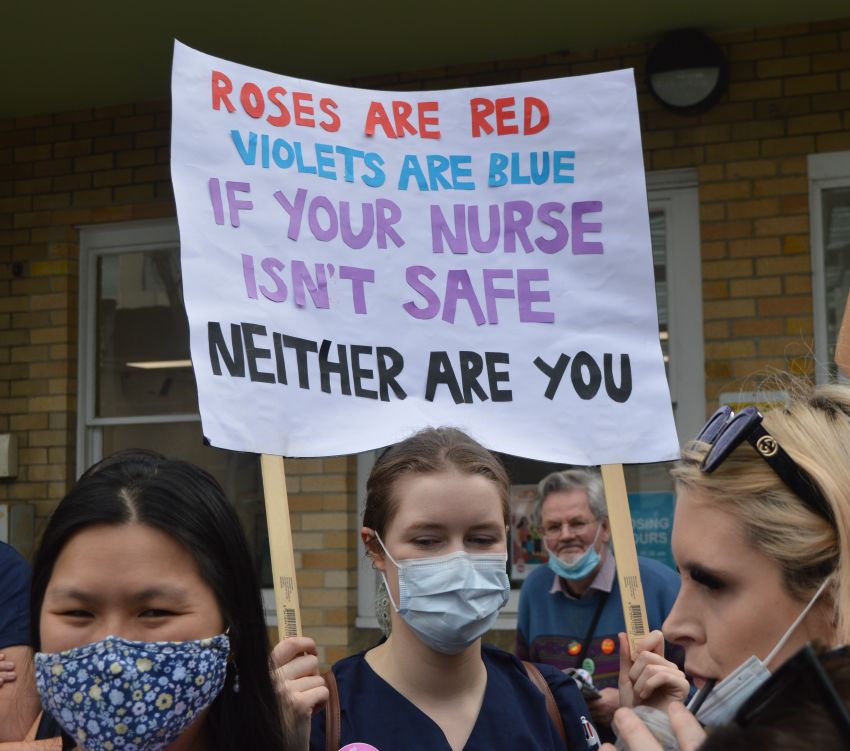
I recently had a radical prostatectomy operation, which seems to have been successful, and spent a week in Sydney’s Royal Prince Alfred Hospital (RPA). The hard work, skill and dedication of the doctors, nurses and other staff underlined why we need to fight to defend and extend the priceless public hospital system.
I observed the high drama involved in medical emergencies, as well as patients’ suffering. I also shared some of the biggest laughs in years. A visiting doctor told a patient he could not tell him about his surgery outcome in any detail, as he normally dealt with problems in the upper body. Operations downstairs, he said, were left to “the plumbers”.
Public hospitals are like complex living organisms, in which the different parts interrelate in mysterious ways. The surgical operating theatre is like a scene from a science fiction movie. The surgeons, anaesthetists and other staff do their skilled work, while you go to sleep, and afterwards the nurses take over as you wake up with tubes everywhere.
Nurses’ work is never ending, day and night: many seem to be on rotating, seven-day shift rosters — playing havoc with their rest, recreation and personal lives.
The interaction between patients, doctors, nurses and other staff in the ward ranged from educational to hilarious. You hear and see (even if you don’t want to) minor and some major dramas unfold.
One night a fellow patient with the dreadful Crohn’s disease started bleeding badly which speedily led to a team of doctors and nurses dealing with the emergency.
Staff and patients are multinational and multilingual. Many staff originate from all parts of the globe, especially Asia.
One of my neighbours was speaking, loudly, to his family in Portuguese, while another was on his phone, in equal volume, to his partner in Hungarian.
One wardsperson from northern England chided me for being a Manchester United football supporter: he was a fan of the rival Manchester City!
My experience emphasised the need for genuine, above-inflation pay rises for nurses and all hospital staff. The New South Wales Nurses and Midwives Association (NSWNMA) wants set nurse-to-patient ratios and that must be supported.
A recent report into the problems of the Medicare system by the Strengthening Medicare Taskforce serves to highlight the vital role the public hospital network plays in maintaining the health and well-being of our community.
It is, literally, a question of life and death.
The continuing intrusion of privatisation and corporatisation into our health system means that obtaining proper health care is becoming a matter of who can afford to pay.
That is why public hospitals, like the RPA, that perform expensive life-saving operations, free of charge, are critical for a health system based on fairness and equality.
Last year the RPA celebrated 140 years of operation. Opening its doors in 1882, RPA and its staff have delivered world class patient care, including during two World Wars, the 1919 influenza pandemic and the COVID-19 pandemic.
A commemorative book, to mark the occasion, features a timeline of the RPA’s many firsts: the first teaching hospital in NSW; the country’s first Perinatal Medicine Unit; the first Psychiatric Assessment Unit, the first Gynaecological Oncology Unit and Sleep Disorders Centre; and it has the largest Melanoma Unit in the world.
Over the past 20 years, the RPA campus has grown with the opening of Chris O’Brien Lifehouse, the Professor Marie Bashir Centre, the Naamuru Parent and Baby Unit and the building of the RPA HealthOne at nearby Green Square. Establishing the Sydney Biomedical Accelerator, in partnership with the University of Sydney, is a focal point for biomedical research, innovation and medtech development.
[Visit the Royal Prince Alfred’s Museum to find out more.]